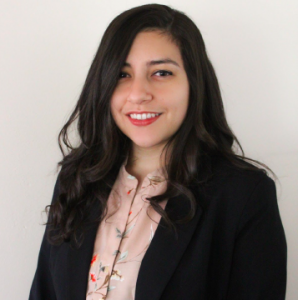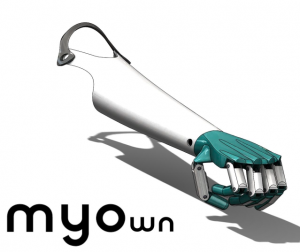Students Show Off Their Projects at CSUNposium

Engineering student Jennifer De Avila and her team presented their proposal for a seismic-resistant, high-rise building, in CSUN’s annual CSUNposium celebration of student research. Photo courtesy of Jennifer De Avila.
Each year, the Earthquake Engineering Research Institute accepts student proposals for a seismic-resistant, high-rise building. This spring, as part of the institute’s competition, a team of CSUN students including Jennifer De Avila, Gerardo Reyes, Paul Ginter and Debbie Altamirano submitted their designs for a new building in downtown San Diego.
On March 27, the team members used Zoom to present their project at the 2020 CSUNposium — the university’s annual Student Research and Creative Works Symposium — which took place virtually this year, as part of CSUN’s social distancing measures to slow the spread of COVID-19.
The students’ building plans were designed to fit the aesthetic of downtown San Diego, and the civil engineering and computer science majors used the computer-aided design software AutoCAD to predict how it would fare against earthquakes. With its mix of shops and office space, the students projected the building would produce an annual income of $7 million in rent.
“As a team, we all jumped in and really focused,” said De Avila. “I’m very proud of my team for doing that.”
The CSUNposium, in its 24th year, gives students like De Avila and her teammates the opportunity to showcase their research and creative activities in all academic fields.
This year’s event included 430 students representing all of CSUN’s colleges. There were 196 oral presenters, divided into six sessions of 3-minute presentations and 21 sessions of 10-minute presentations, as well as 234 students presenting in the poster session. Some presentations were organized by theme: nature; automation, technology and design; human health; interpreting identities; cultural representation; human-environment interactions; health and human development; and women/gender.
Following all the presentations, judges awarded winners for each session in a virtual award ceremony, as hundreds of students and faculty members cheered for the winners. The list of winners can be viewed on the CSUNposium website.
Despite the social distancing and global uncertainty, CSUN students were still able to show off their projects. Jonathan Watts, a graduate student in the Department of Health Sciences, studied the link between adverse childhood experiences and compromised mental health, and he recommended social support programs to help high-risk individuals.
Kelly De Leon, a senior Central American studies and Chicana/o studies major who studied Queer/Cuír and transgender art performances in Guatemala City, was awarded first place in session five of the oral presentations.

Prototype image of CSUN students Samuel Ayala and Christina Marie Seeholzer’s design for a more inexpensive prosthetic arm. Photo courtesy of Samuel Ayala.
In the automation, technology and design category, Christina Marie Seeholzer and Samuel Ayala presented their project on designs for prosthetic arms. The goal of the project was to develop two affordable, electrically powered prosthetics. Current designs for prosthetics are not easily accessible due to the cost. According to Ayala, prosthetic arms could range in cost from $7,000 to $10,000. Seeholzer and Ayala proposed a design with production costs around $800, but with similar capabilities of other, more expensive designs. They would achieve this by using 3-D printing and inexpensive electronics, they said.
“We are right on track to meet the needs of amputees and create devices that greatly improve their quality of life,” Seeholzer said.

 experience
experience